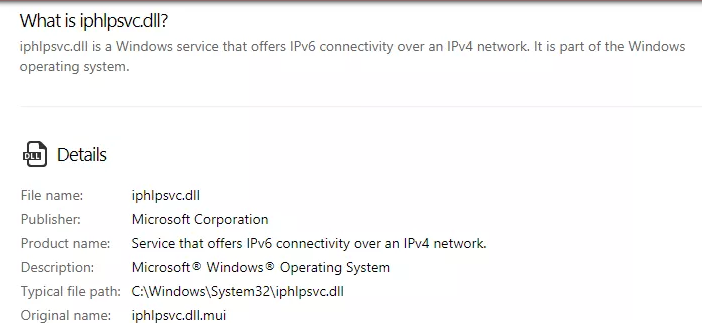HEALTH
The Pros and Cons of Taking Supplements For Peripheral Neuropathy Relief

Peripheral Neuropathy is a condition in which the nerves that carry information from the brain to the spinal cord and the rest of the body become infected and damaged.
Below are some of the risks and benefits of prescribed supplements you ought to consider for peripheral neuropathy relief.
Effective Vitamins for Nerve Pain

Some of the best supplements for neuropathy relief include Benfotiamine and B-Vitamins.
Benfotiamine is the best supplement for type 2 diabetes. As a solvent more so like Vitamin Thiamine, it’s not only prescribed by many physicians for treating diabetes but also reverts neuropathy symptoms. However, Benfotiamine has various side effects like hair loss, dizzy spells, weight gain, and nausea.
Several B-Vitamins contribute to the regeneration of nerves and the production of myelin, a protective layer that covers the peripheral nerves. Eggs, Green Leaves, Cheese, Fish, and Melons are some of the food rich in vitamin B. Therefore, following a healthy diet will help promote better nerve growth and development.
However, excess Vitamin B6 and Vitamin B3 can bring about neuropathy and muscle tissue breakdown respectively. Overall, consuming excessive supplements can lead to vitamin toxicity.
Pain Relief Supplements
Two of the best supplements for regeneration and pain relief are the Nerve Renew and nerve support formula.
Nerve support formula contains Benfotiamine and B-Vitamin and methylcobalamin that are very essential for the regeneration of nerves for effective healing and relief from peripheral symptoms. The downside is that it lacks a few essential ingredients like folic acid and Vitamin D that are quite vital for nerve development and healing during treatment.
Nerve Renew consists of essential ingredients such as benfotiamine, methyl B-12, and R-Alpha Lipoic Acid. All the ingredients combined will help to reduce nerve damage pain, improve nerve sensations and increase blood flow from the brain to the nerves. The only side effect from Nerve Renew supplement is that one may experience some stomach upset.
Herbs for Neuropathy

The best two Nerve Pain Remedies to incorporate during your treatments are herbal Oat Straw Extract and Skullcap Extract.
Skullcap extract is known to be an anti-inflammatory agent that will relieve you from anxiety keeping your peripheral nervous system relaxed and balanced. That way you won’t have any tingling or burning sensations on your hands and feet. However, Skullcap Extract has several side-effects that include dizziness and drowsy spells.
Oat Straw Extract, on the other hand, is manufactured from green oats and helps in promoting nerve development through improved blood flow from the heart to the brain and the muscles. Its side effects may include low blood pressure, low cholesterol, stomach bloating and low sugar levels.
Always ensure that you take the supplements as prescribed by the doctor to avoid complications.
HEALTH
Heart Matters: The lifesaving importance of regular cardiac check-ups

In the tapestry of modern healthcare, the heart, a vital and dynamic organ, deserves special attention. Regular check-ups with a cardiologist are not just an appointment, they are a vital part of navigating the complex landscape of cardiovascular health. This article explores the critical importance of routine visits to a cardiologist and highlights their role in the prevention, early detection and management of heart-related conditions.
Understanding the heart: A complex symphony
The heart, an organ that works tirelessly to pump life through our bodies, is susceptible to a number of conditions that can affect its function. From high blood pressure and irregular heartbeat to coronary artery disease, the spectrum of heart conditions is wide. Regular check-ups with a cardiologist allow these conditions to be detected and treated early, often before they become major health problems.
Prevention: The first line of defence
Preventive cardiology is the cornerstone of heart health. Regular heart screenings help identify risk factors such as high blood pressure, high cholesterol and diabetes. By addressing these risk factors, individuals can significantly reduce their chances of developing heart disease. Cardiologists often provide tailored advice on lifestyle changes, such as diet and exercise, which are essential to maintaining optimal heart health.
Early detection: Averting the unseen dangers
Many heart conditions develop silently and gradually, making them difficult to detect without professional assessment. Regular visits to a cardiologist can lead to early detection of problems such as arrhythmias or blockages in the coronary arteries. Early detection is crucial as it allows for timely intervention, potentially preventing serious consequences such as heart attack or stroke.
State-of-the-art diagnostics: The power of modern medicine
Modern cardiology has made great strides in its diagnostic capabilities. From echocardiograms and stress tests to advanced imaging techniques such as cardiac CT and MRI, cardiologists have a range of tools at their disposal. These tools provide a detailed assessment of the heart’s structure and function, providing critical information to guide treatment decisions.
Managing existing heart conditions
For people with existing heart conditions, regular check-ups are essential to monitor disease progression and the effectiveness of treatments. Medication adjustments, lifestyle recommendations and sometimes more interventional approaches such as angioplasty or surgery can be determined on the basis of these regular assessments.
The psychological aspect: Understanding and reassurance
The psychological impact of heart disease is profound. Regular contact with a cardiologist can provide reassurance, understanding and support. This aspect of care is crucial in managing the stress and anxiety that often accompany heart disease.
Personalised healthcare: Tailoring strategies to individual needs
Cardiology is increasingly moving towards personalised care. Regular check-ups allow cardiologists to tailor prevention and treatment strategies to the individual needs of patients, taking into account their medical history, lifestyle and specific risk factors. When it comes to cardiology in Appenzell (Switzerland), that is Kardiologie in Appenzell (in German), don’t hesitate to visit Dr. Stern at MZM.
The role of technology in cardiac care
Technological advances have transformed cardiac care. Wearable devices that monitor heart rate and rhythm, telemedicine for remote consultations, and digital health records have made it easier for patients to stay connected with their cardiologists and actively participate in their heart health management.
The broader impact: Public health and awareness
Regular cardiac check-ups play an important role in public health. They contribute to a broader awareness of heart health, encourage early intervention and promote healthier lifestyles in communities.
Conclusion: A heartfelt call to action
In conclusion, the importance of regular check-ups with a cardiologist or Kardiologe (in German) cannot be overstated. These visits are fundamental to preventing heart disease, detecting conditions early and effectively managing ongoing problems. They are an investment in your health that can lead to a longer, healthier life.
Remember, heart health is not just a personal matter; it’s a commitment to yourself and your loved ones. Regular visits to your cardiologist are an important part of that commitment. Embrace this practice as a proactive step towards a heart-healthy future.
HEALTH
How to Build Muscle with Wellhealth

How to Build Muscle with Wellhealth you want to bulk up, get stronger, and develop a more alluring body? You’ve found the proper location, then. In this post, we’ll delve into the realm of weightlifting and muscle development from a Wellhealth perspective. Nutrition, exercise, supplements, and rest and recuperation will all be discussed as they pertain to gaining muscle mass. Let’s jump right in and start learning some practical bodybuilding techniques.
Understanding the Importance of Muscle Building
The importance of muscle development cannot be overstated prior to diving into its specifics. Muscle development not only improves physical beauty but also health. Muscles are essential for movement, support, and calorie expenditure. In addition, they are crucial in increasing the body’s metabolic rate, which aids in the maintenance of a healthy weight.
The Role of Nutrition in Muscle Building
In order to gain muscle, you must first focus on your diet. In order for your muscles to expand, your body needs the proper fuel. This means getting enough of everything you need to be healthy, such protein, carbs, good fats, and vitamins and minerals. Wellhealth can help you develop a personalised diet plan to help you achieve your muscle-building objectives.
Effective Workouts for Muscle Building
The best way to gain muscle is to combine a healthy diet with regular exercise. At Wellhealth, you may choose from a number of exercises that are tailored to work certain muscle areas. You can find strength training routines that are appropriate for your experience and objectives, no matter where you stand on the fitness spectrum.
Supplements and Muscle Growth
Taking supplements throughout your efforts to gain muscle might be helpful. Protein smoothies, creatine, and branched-chain amino acids are just some of the supplements that you can learn more about on Wellhealth. However, supplement usage should be done with caution, and medical advice should be sought out if necessary.
Recovery and Rest: The Key to Muscle Development
The value of rest and recuperation is often disregarded. According to Wellbeing, resting your muscles is crucial for their growth and regeneration. In order to avoid injury and stagnation, it’s important to schedule rest days into your training schedule.
Setting Realistic Goals for Building Muscle
When trying to gain muscle mass, it is critical to focus on a process rather than a product. Get in shape the way you want to with the aid of Wellhealth’s customised plans. Keep in mind that progress is gradual, and that setting reasonable goals is essential for long-term achievement.
Common Mistakes to Avoid
When trying to grow muscle, it’s important to avoid frequent mistakes. These common blunders are highlighted by Wellhealth so that you can avoid them. Some important things to remember are to avoid overtraining, poor form, and poor nutrition.
The Mind-Muscle Connection
Muscle gain involves more than just your body and mind. The Wellhealth programme stresses the need of a robust mind-muscle link. Concentrate on the specific muscle you’re working out, and see yourself getting stronger.
Staying Consistent with Your Routine
The key to successful muscle gain is consistency. Wellhealth offers methods to keep you inspired and regular on your path to better health. Always keep in mind that it’s the steady, little things that add up to the big wins.
Tracking Progress and Making Adjustments
Wellhealth provides resources and advice to help you monitor your development. Taking stock of your fitness level and body on a regular basis will allow you to make any required modifications to your training and diet. This will guarantee that you never stop making progress.
Benefits of Building Muscle with Wellhealth
Strength, metabolism, and confidence are just some of the outcomes of using Wellhealth to build muscle. Feeling your best is just as important as looking your best.
Personal Success Stories
Wellhealth features the triumphant tales of individuals who have improved their health and quality of life by training their muscles. Genuine efforts yielding genuine outcomes.
Expert Tips for Muscle Building
Take advantage of Wellhealth’s knowledgeable staff’s wide expertise in the area of muscle development. They provide helpful advice and information to aid you on your way. Trust that you are in good hands.
Conclusion
In conclusion, Wellbeing provides an all-around method for muscular development. You can achieve your fitness objectives if you pay attention to what you eat, perform, and think about. Keep in mind that this is a marathon, not a sprint. Maintain a steady approach, and success will find you
HEALTH
Outline for “Healthy Life with Wellhealthorganic”

Healthy Life with Wellhealthorganic maintaining a healthy lifestyle is essential for happiness. It involves several factors, such as diet and stress management. In this piece, we’ll discuss the fundamentals of a healthy lifestyle and offer Wellhealthorganic, a comprehensive plan for reaching your health goals.
The Importance of a Healthy Lifestyle
A longer and more satisfying life is possible via maintaining good health. Your quality of life will improve and your chance of developing chronic illnesses will decrease.
Balanced Nutrition
The key to a long and healthy life is eating right. Eating a diet full of fresh produce, lean meats, and healthy grains is essential.
Regular Physical Activity
Maintaining a healthy weight and increasing fitness levels both need regular physical activity.
Mental and Emotional Well-being
The state of one’s mind is just as crucial as one’s body. Maintaining one’s mental and emotional health through effective stress management techniques is essential.
Quality Sleep
Getting a good night’s sleep is critical for revitalising your body and mind. The mental and emotional benefits of getting enough sleep are well-documented.
Stress Management
Numerous medical problems can be brought on by stress. Managing stress well is a vital life skill.
Hydration
For optimal body function, hydration is a must. Benefits include improved digestion, blood flow, and general health.
Avoiding Harmful Habits
To safeguard your health, you should abstain from tobacco use and binge drinking.
Natural Supplements Healthy Life with Wellhealthorganic
Natural supplements are a great way to enhance a balanced diet and active routine.
Wellhealthorganic: A Holistic Approach
When you make the decision to live a wellhealthorganic Healthy Life with Wellhealthorganic, you’re making a commitment to your overall health and happiness.
Benefits of Organic Living
Organic meals and goods are healthier for your health since they don’t include any artificial ingredients or chemicals.
Eco-Friendly Living
Wellhealthorganic encourages eco-friendliness, so that our world can be preserved for future generations.
Conclusion
Everyone has the potential to live a healthy life, and this potential is multifaceted. It involves a lot more than just eating right and exercising, though. If you’re looking for a comprehensive method to improve your health and the state of the planet, go no further than wellhealthorganic.
FAQ’s
What is Wellhealthorganic?
Wellhealthorganic is a lifestyle philosophy that prioritises health, sustainability, and environmental consciousness in equal measure.
How can I start living a healthy life?
Start today by incorporating good food, regular exercise, and stress reduction into your daily life.
Why is mental well-being important for a healthy life?
Your quality of life and physical health are both affected by your mental health.
What are the benefits of organic living?
Choosing to live an organic lifestyle means less time spent inhaling toxic chemicals and more time enjoying life.
How can I transition to a Wellhealthorganic lifestyle?
Choosing organic products and lowering your carbon footprint are great places to start.
-

 Marketing1 year ago
Marketing1 year agoHow Often Should You Publish on a Blog?
-

 Technology1 year ago
Technology1 year agoIPHLPSVC Services Tuning? Windows 7/10
-

 Technology1 year ago
Technology1 year agoHow AI Can Transform Healthcare
-

 REVIEWS1 year ago
REVIEWS1 year agoBest Gaming Communities Like F95zone
-

 OUTDOOR1 year ago
OUTDOOR1 year agoColoring Black and White Photo at Home
-

 Technology1 year ago
Technology1 year ago5 Best React JS UI Frameworks for Swift Prototyping
-

 REVIEWS1 year ago
REVIEWS1 year agoAll You Need to Know About KissAnime – Is it Safe and Legal?
-

 GAMING1 year ago
GAMING1 year agoPick N Mix: A Slots Adventure for Everyone
